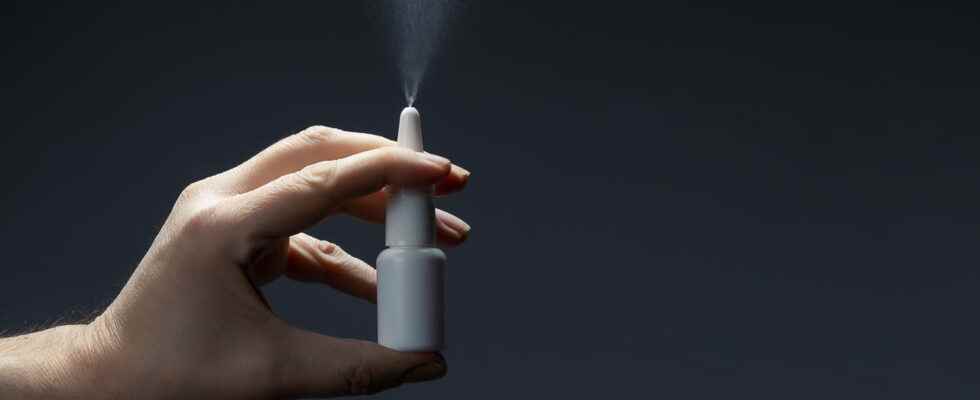Actisoufre® is a medicine used in the adjunctive treatment of the common cold. What is its other indication? How to use it well? Can you get it without a prescription? What are its side effects?
The drug Actisoufre® is composed of sodium sulfide (chemical substance containing sulfur) and a Saccharomyces cerevisiae yeast extract (Or yeast) rich in vitamins and trace elements. It is a local treatment that exerts an antiseptic and anti-inflammatory action on the upper respiratory tract (nose and pharynx). It also allows to protect the respiratory mucous membranes and regulate the production of secretions.
Indications: when to use Actisoufre?
Actisoufre® is a medicine used to treat chronic inflammation of the upper respiratory tract such as a cold and chronic nasopharyngitis (inflammation of the nasal passages and back of the throat). It can also be used for relieve rhinitis in a context of sinusitis, in addition to another treatment such as an antibiotic or an analgesic.
Is it available with or without a prescription?
The commercial specialty Actisoufre® is available in pharmacies without a prescription.
The use of Actisoufre® varies according to its route of administration (nasal, buccal) and its pharmaceutical form (pressurized bottle, glass ampoule).
► The pressurized bottle (or spray) is used exclusively nasally in infants. It is recommended to lay the child down or sit him with his head tilted on the side in order to avoid the contraction muscles of the larynx. The solution is then administered by delicate introduction of the nasal tip into the nostril and by spraying by pressing the spray. For spraying into the second nostril, the head should be tilted to the other side. The solution should never be administered when the head is positioned backwards. In adults and children from 3 years of age, the nasal spray is often used in a seated position. For oral administration, the mouthpiece is introduced into the mouth and then the dose is delivered by pressure exerted on the spray.
► Regarding the glass bulb, it contains a suspension intended to be swallowed or to be administered nasally. Prior to administration, the ampoule should be shaken and opened by breaking one end then the other end over a dropper bottle or glass to release its contents. For the nasal spray, place your head back, release the suspension into your nostril by squeezing the bottle, wait 30 seconds to let the product come into contact with the secretions, stand up and then swallow. If the fact of swallowing secretions causes discomfort, block a nostril, breathe 3 to 4 times through this nostril and expel the solution into the sink by exhaling. Having done the same in the second nostril, the operation must be repeated until the drug is exhausted. For oral use, the contents of the ampoule must be diluted in 10 mL of water (the equivalent of a dessert spoon) then swallowed during a meal.
How long can Actisoufre be taken?
The maximum duration of treatment is not defined, the patient must respect the prescription established by the doctor or the duration recommended by the pharmacist. If symptoms persist or worsen after a few days, a medical consultation is necessary.
What are the side effects of Actisoufre?
Actisoufre® can cause digestive problems like stomach pain when administered orally. In addition, the medicine presented in a pressurized bottle contains sodium methyl parahydroxybenzoate which may be responsible an allergic reaction if swallowed by patients with sensitivity to related preservatives. No side effects have been reported with Actisoufre® administered nasally.
For whom is Actisoufre contraindicated?
The drug Actisoufre® does not present no contraindications particular. Its use is to be avoided only in patients allergic to any of the components of the drug. In the absence of in-depth studies, Actisoufre® is not recommended for pregnant or breastfeeding women.
What is the price of Actisoufre and what reimbursement?
Whatever the pharmaceutical form, Actisoufre® is over-the-counter in pharmacies. Since the price is set freely, it fluctuates very differently from one pharmacy to another, generally ranging from 5 to 9 € for the spray, and from 6 to 10 € for the box of 30 vials. Even when prescribed by a doctor, Actisoufre® is not reimbursed by health insurance, it remains entirely at the expense of the patient.
Source: Public medicines database, ANSM
